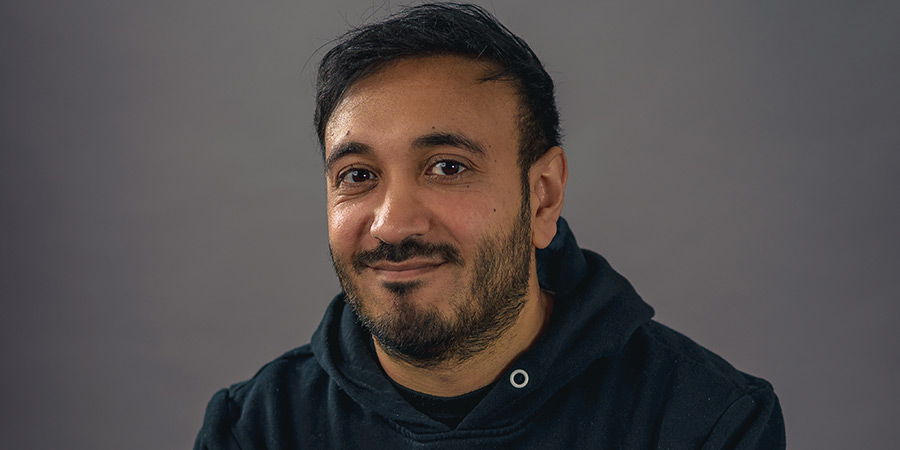
Bilal, obvious place to start: how’s the Fringe going for you so far?
Excellent so far. I’m really happy with my show. This is my fourth Fringe, so I’m not getting too sucked into looking at what everyone else is doing, because it’s quite easy to get obsessed with people getting all this attention from The Guardian or whatever. But this year I’m just enjoying doing it.
Let’s talk about your show, Care. What’s it about?
After I did my media degree, there was no way to get a job in that – it’s very difficult to become like a TV comedy writer straight after. So I got a job working in a care home because I thought that sounded like a nice thing to do. But it’s a big private company that owns it, and everyone staying there was very, very wealthy. I was on £6.50 an hour. And there’s just a lot of stories there.
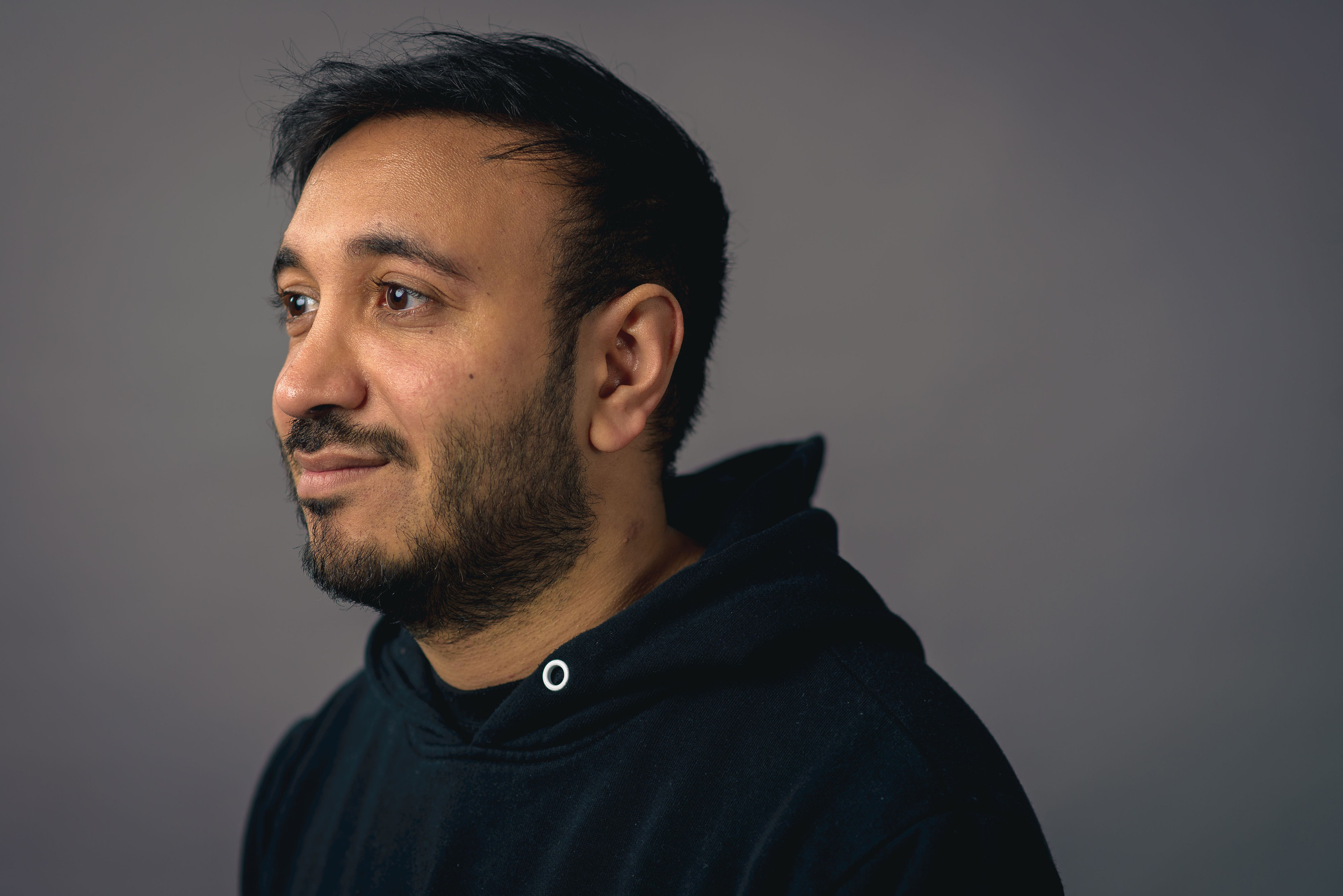
Photo: Leslie Byron Pitt
Even though you finished Uni a little while ago, it seems to become an increasingly pertinent story: the haves and the have nots. Do you think the show has become even more relevant to the times we’re in now?
Definitely. Because people are struggling with money and bills are going up. But then also, during the pandemic, you really saw people’s attitudes towards the elderly – they didn’t even care if they lived or died. Look at Matt Le Tissier’s tweet, for instance. He basically said, ‘Well, if it’s only going to kill old people, who cares?’
What was it actually like for you, working there?
It was my first proper job, so the sense of responsibility was quite good. I enjoyed a lot of it, but then it just got very difficult because the demand was too much. It was really hard work and they were super strict. There’s a bit in my show about how I got a disciplinary for making myself a sandwich – because I was meant to have paid for it, even though we wasted so much food. You might think that when doing care work, the residents themselves are gonna be nasty to you. But they weren’t. They were lovely. It was my bosses that were assholes, basically.
What did that experience teach about the world?
You realise how, in a job like that, you’re disposable. They could have got rid of me and replaced me with someone. At first, you feel like you’re part of something, then you realise you’re absolutely not. I think that’s the case for a lot of people in a lot of jobs.
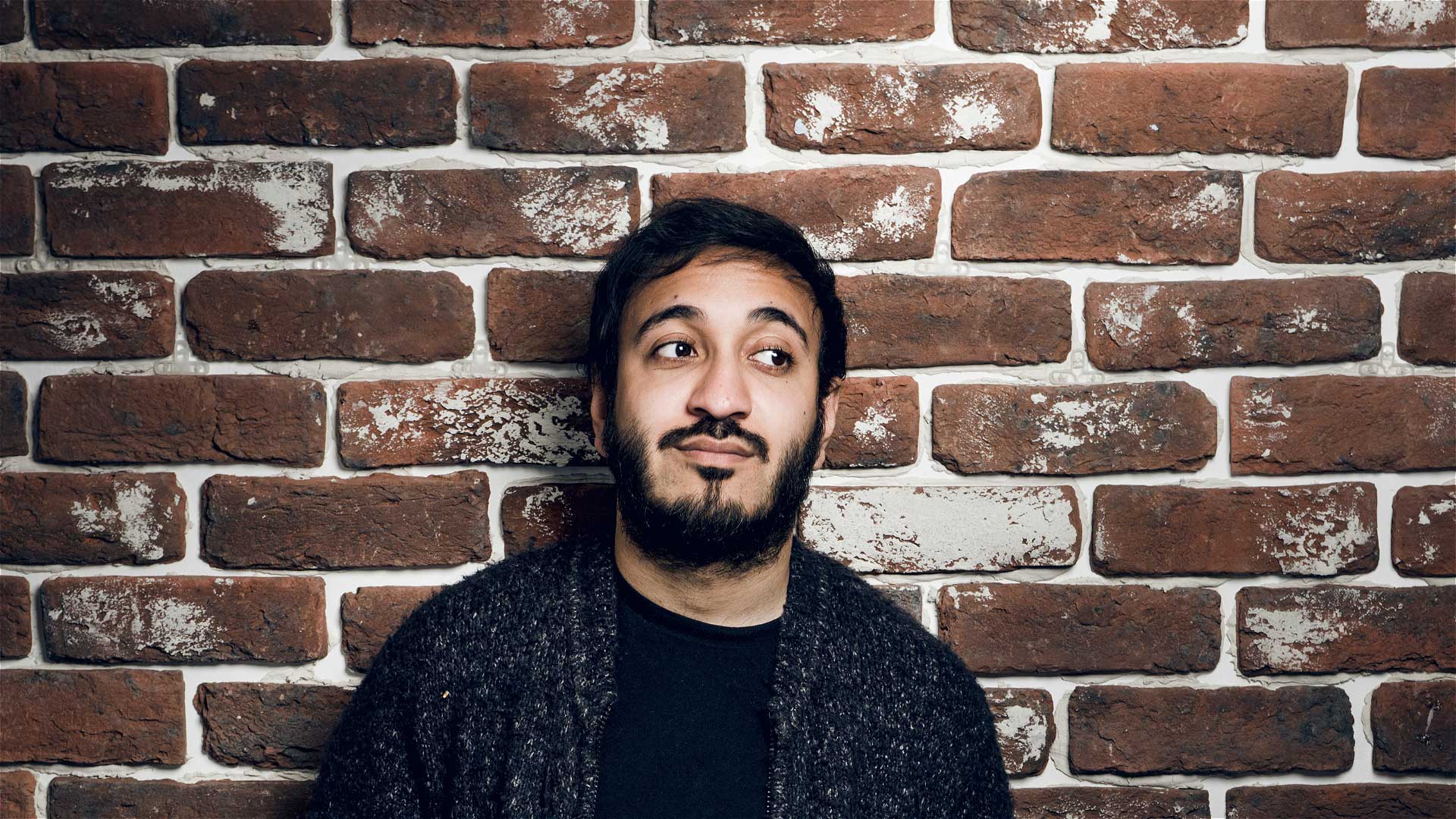
And you developed some quite strong relationships there. Can you talk about your relationship with one resident in particular, Barry?
Barry was, I think, in his 90s; completely blind, going deaf, on an oxygen machine, in a wheelchair. And because his hearing wasn’t good, Barry thought my name was Al, because he only heard the last bit of my name. Also, he was Jewish and always asked me if I was Jewish. I’d say no, but then in his mind, he believed that I was. And it was something I kind of had to go along with.
That was a big part of the job: going along with people’s vision of the world. Because a lot of other residents had dementia and would think you’re one of their family members. Obviously, you’re not going to play along in that way and act like you are, but you don’t correct them, because that could upset them.
There was a lady who thought the building was her mansion building, and she thought I worked for her, and she was really happy. And it’s like: Is that sad? Or is that okay? She’s happy. It’s like a Black Mirror episode or something where she’s living in a simulation.
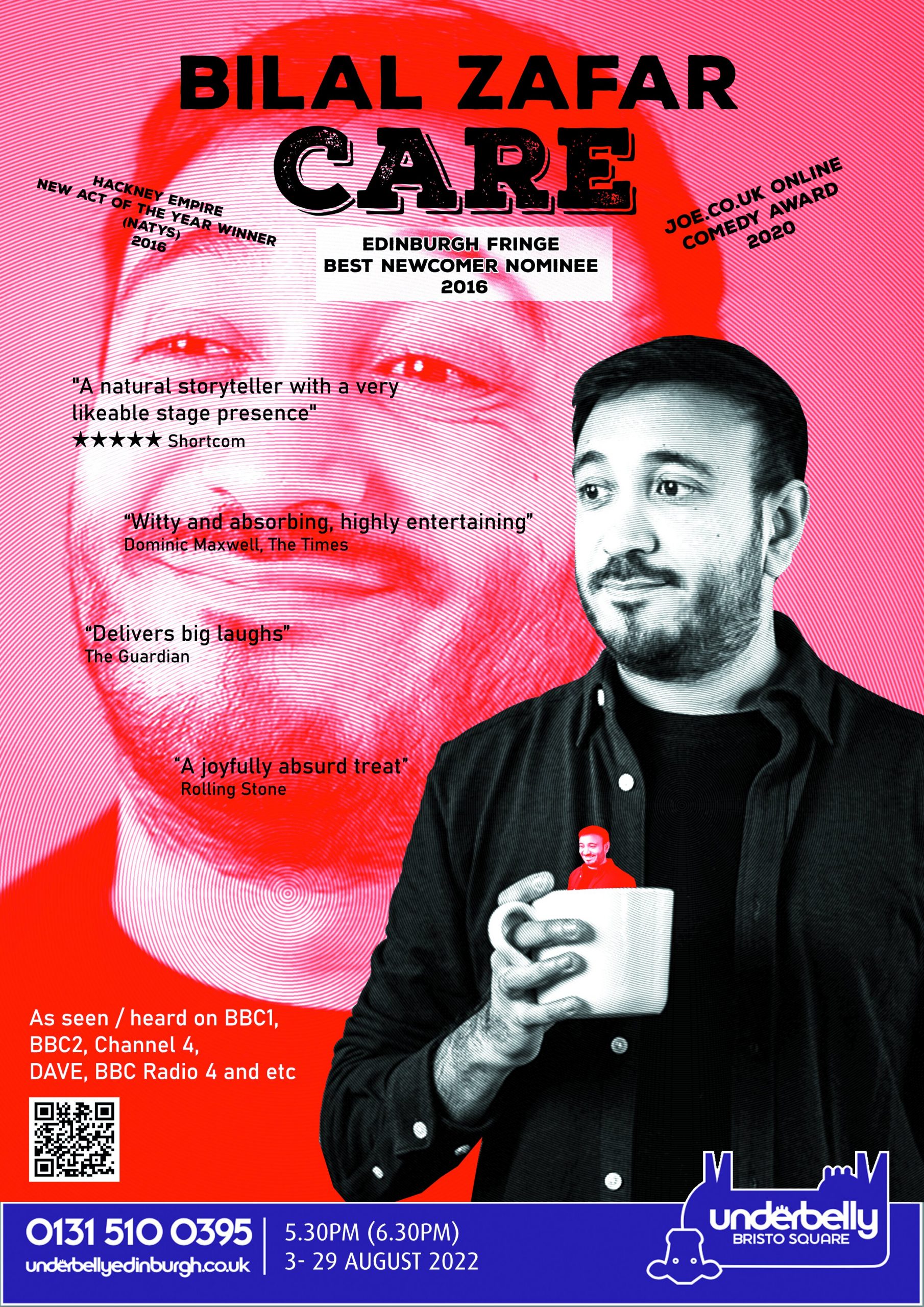
You’ve been nominated for Best Newcomer at The Fringe before. What significance does The Fringe hold for yourself and other comedians alike?
It’s amazing. Just coming and seeing all my friends that I’ve worked with through the years; and the amount of people I know who are lovely, and who are doing excellent work. I did get a bit frustrated, because prices of accommodation have gone up this year, I felt like I was being scammed. Then you get here and realise this is amazing. Everyone says it’s the biggest arts festival in the world; and it is incredible, when you’re actually seeing loads of stuff, doing a show as well, meeting loads of people. And the opportunities you get off the back of it; there’s all sorts of people from different film and TV production companies.
Have you had to relearn the art of performing live, after not doing it for a while?
Kind of. I think it was great to have an enforced break for a lot of people. It refreshed you. And also, I built up a whole new kind of confidence in doing stuff online because you don’t have the live reaction, you don’t hear the laughter, so you have to just trust when you’re funny. And I’ve brought that with me, I think to stand up.
So now I take way more risks, I’m a lot sillier than I was, and I’m not obsessing over whether it’s something reviewers would want to hear, like I used to. Now I’m just like, ‘I’m pretty sure this idea is fine. I’m just gonna go for it.’
I’ve built up a whole new audience who love the stupid stuff I come up with. And it makes you realise your value. You’re like, ‘Oh, I’m actually quite good at this.’ A lot of performers, I think, have that imposter syndrome and don’t know how good they are.
A big part of that audience was a huge following you’ve developed on Twitch. How did that come about?
Limmy, who’s a friend of mine – which is amazing because I was a big fan of his before – was obsessed with Twitch. He streamed on there every day, pretty much. When I lost all my gigs, I tried doing Instagram Live. I never tried Periscope, it looks crap. And I wasn’t gonna do Facebook Live because what’s the point?
And then Twitch looked really cool, and you could have quite high production value quite easily, especially if you get a green screen and learn how to do that. You could set yourself up fairly cheap and do whatever you want.
So I started that in 2020. And then I played a football manager – and that took off massively and has got a big following. I never had a proper audience like that before. I don’t think I really had proper fans; I think there was just people who knew me from The Fringe. Then on Twitch people became totally invested in what I do. I get recognised all the time because of Twitch, which is really weird.
How much did it surprise you when it started taking off?
I didn’t know enough about Twitch. I thought loads of people would have done this idea. When you play football games, you imagine you’re the manager; at halftime, you say tactics, you kind of imagine post-match team talks and weird little things. Everyone does that anyway, so I thought it was a thing that people would be doing on a much higher level. But no one had done it; no one had thought to just wear a suit and be the manager the whole time. So it was a fluke, really, and it took off.
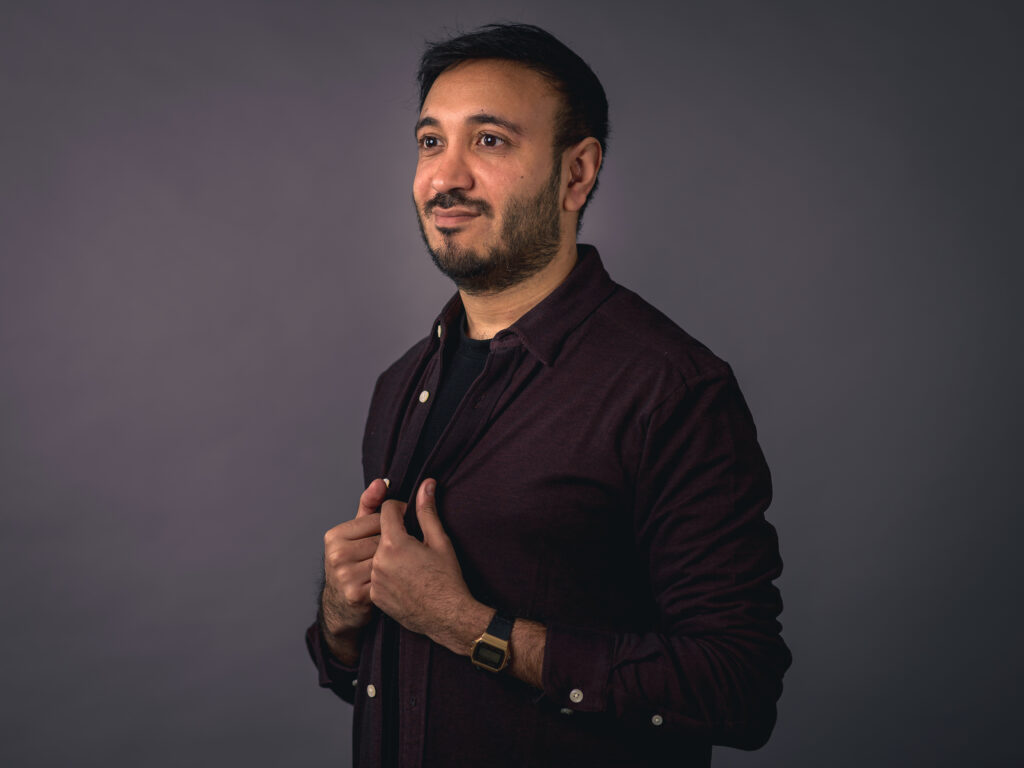
And who’ve you seen here at The Fringe that’s excited you?
Loads. John Luke Roberts has an excellent show; Rob Auton, amazing; Sooz Kempner has a very good show.
A lot of the comedians as well, like Christopher Macarthur-Boyd, Rosco McClelland, I met through Twitch – they did stuff on there at the same time. I’ve got so many really talented friends.
Bilal, thanks for your time – we’re off to catch some more shows…
Bilal Zafar’s ‘Care’ is on at Underbelly, Bristo Square (Jersey) every day at 17:30 at The Fringe.


